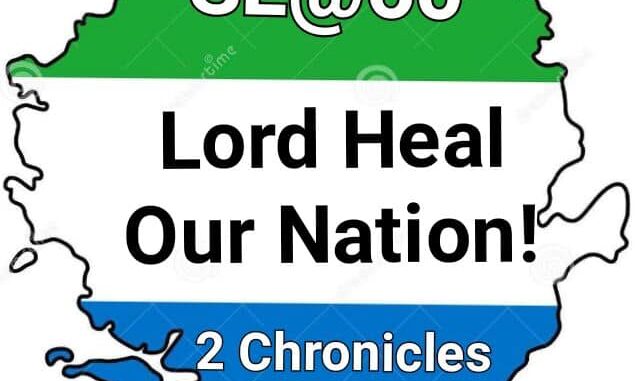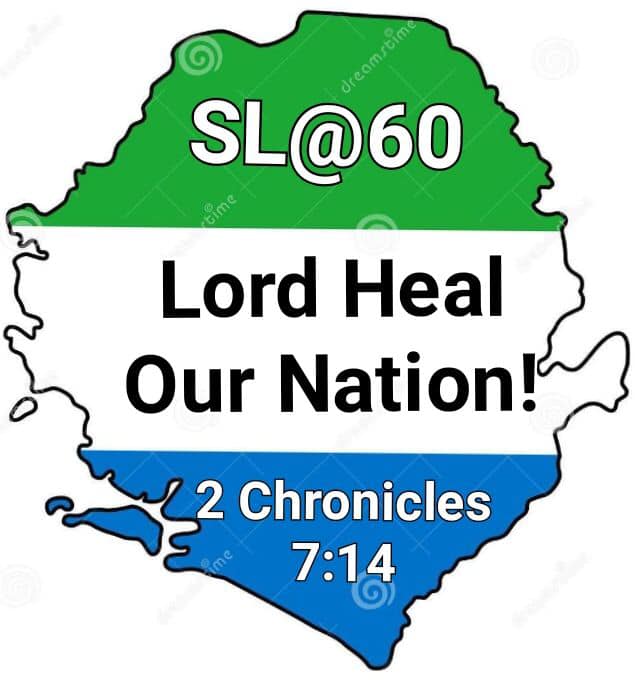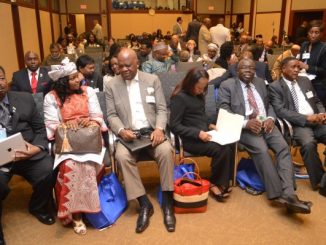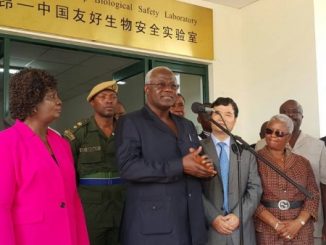
The irony of celebrating political independence and the lack of economic freedom of a nation that after sixty years of independence,still can’t provide clean water, electricity , healthcare education and jobs for its citizens despite the country’s immense wealth.

As the president of Sierra Leone, Julius Bio invites his counterparts in neighbouring African countries to join him in celebrating the country’s independence day, I ask this question: when will the people of Sierra Leone celebrate economic freedom? Reflecting on the tragedy of Sierra Leone since 60 years of independence from Britain, forgive me if I suggest it could just have been better to remain under the British rule than the so called independence.
By this suggestion, I have open myself to refutation from those who would posit the argument that the British rule was demeaning and founded on economic exploitation that substantially denied their colonies to naturally develop their own system of government.
However, no one could have predicted how these former colonies could have emerged without foreign powers colonising them.However, Sierra Leone leadership cannot satisfactorily explain the prevailing ruinous socioeconomic and the undemocratic political atmosphere , that continues to stunt the development of the former colony, without accepting their own share of guilts as to why, Sierra Leone remains at the bottom of every UN human development index and still unable to transform the economy to provide the basic life essential amenities for their citizens.
The greatest threats to political stability and economic development of Sierra Leone are due to corrupt and inept leadership, leaders who put their pockets first before the empowerment of the people who elected them into office. This is almost the situation in every where in subsahara Africa. Thus to celebrate independence, in the absence of economic freedom is an illusion.
It’s conflicting when a state celebrates its political independence, but it cannot demonstrate economic progress in the lives of the people. Sierra Leone is one of the countries with the highest Illiteracy rate despite the British had established the first university there in subsahara Africa. 69 percent male and 80 percent of women are can’t read or write simple sentences in Sierra Leone, according to human development index.
It remains one of the lowest life expectancy in the world with 56 percent, due to nutritional deficiencies, lack of access to water, malaria and extremely poor health care structures or lack of it.It is among the highest infant mortality rates due to pervasive poverty, lack of water and limited access to quality healthcare or the complete absence of it.The 2020 global index on hunger put Sierra Leone on 101 out of 107—- as being among the ten poorest countries in the world.Sierra Leone is also classified as the poorest of the bottom 10 of countries. 70 .2 percent of the population are below the poverty line — coming forth, Syria first on 82.5 percent, Zimbabwe second on 72 percent and Madagascar third on 70.7 percent. Nigeria, the most populous African country is 5th with 70 percent of her population below poverty line. Liberia is 20th having reduced the population below poverty line to 54.1 percent.
But let’s remind Sierra Leoneeans, as the politicians in that country celebrates the country’s independence from Britain , and ask ourselves, why is the country in such a hopeless situation after 60 years of political independence? It is the politicians who will give answers to this question, but it is the voters ,who will pass judgement on the state of affairs in the country in the 2023 elections— if they want to avoid seeing the samething that they have seen in 60 years of independence.
The entire political structure that has govern Sierra Leone need a change to allow a new political leadership with distinct ideas and vision that are seismically and qualitatively different from the last sixty years.
INTERESTING FACTS ABOUT SIERRA LEONE, TO REFLECT ON.
1. Sierra Leone was the center for British Colonial Administration and Business in West Africa.
2. In 1808, it became the first crown colony of Britain in Sub–Saharan Africa.
3. It was the first country in West Africa to have a railway in 1898.
4. First to have electricity and broadcast services in the sub-region in 1927.
5. the First country in Sub-Saharan Africa to have an airline in 1927.
6. Freetown became the first city in West Africa to have an airport at Hasting where a plane, for the first time, landed directly from England and returned to England via The Gambia in 1927.
7. It was the first to have a tropical hospital in West Africa in 1925.
8. First to have a primary school back in 1794 and a university (Fourah Bay College) in 1827.
9. The first hospital for the mentally retarded in West Africa was established in Freetown in 1920.
10. It was the first country in West Africa where Motor Vehicles were introduced in 1912.
11. Sierra Leone was the first to have an English Legal system with black judges and jurors.
12. Sierra Leone’s Supreme Court became the final court of Appeal for Ghana, Nigeria, and The Gambia.
13. In 1843 the Whole of Gold Coast (Ghana), Nigeria, and The Gambia was placed under the administration of Freetown.
14. In 1792 Sierra Leone became the first country in the world where women first cast votes in an election before women began to vote in Britain in 1918.
15. In the 1800s, seventeen Black-Priests and a Bishop went to Ghana and Nigeria as missionaries to spread Christianity and established churches there.
16. In 1893 Freetown Municipality became the first city in West Africa to have a Mayor.
17. Freetown became the first city in West Africa to have a Banking system, ‘Bank of British West Africa’.
18. Sierra Leone was also the first country in West Africa to have a post Office.
Yankuba Kai-Samba Chelmsford UK



